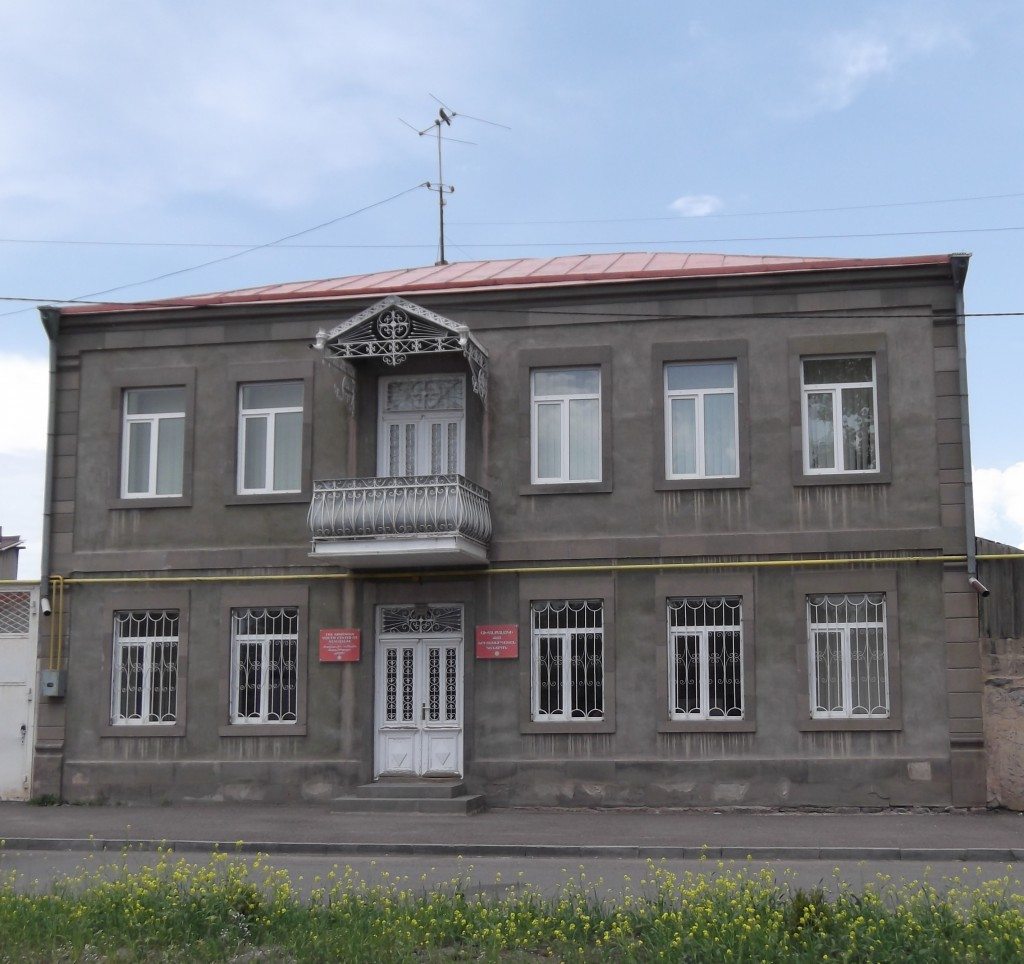The Georgian Dream Party (GDP) dramatically came to power in 2012 on the back of a popular message. The GDP claimed that Mikhail Saakashvili’s United National Movement (UNM) had become authoritarian and lost touch with the people. The message was strong: The government will deliver for the people of Georgia. This was the “Georgian Dream.”
Clik here to view.

The Armenian Youth Center of Akhalkalak
The dramatic takeover of the government started with the election of Georgia Dream’s Bidzina Ivanishvili as prime minister in October 2012. A year later, Ivanishvili’s former education minister, Giorgi Margvelashvili, replaced Saakashvili in the largely ceremonial role of president. Soon after, Ivanishvili fulfilled his election promise to voluntarily step aside, naming his long-time Georgia Dream associate Irakli Garibashvili as the new prime minister of Georgia.
The GDP’s hold on all major Georgian government posts was complete by December 2013. Twelve months on, the Armenians of Javakhk are still eagerly awaiting their piece of the Georgian Dream.
Challenging economic conditions encountered by Javakhk Armenians over the course of a number of years led many to attain Armenian citizenship and travel to Russia to seek employment. As Georgia’s legislation restricts dual citizenship, these Javakhk Armenians were not permitted to retain their Georgian citizenship.
Now, due to new Georgian government visa laws, these natives of Javakhk must attain a visa to return home for stays over 90 days. The visa process is cumbersome and the need to “verify possessing of sufficient funds,” as outlined in the visa requirements, has proven to be difficult for many. For fathers and brothers who have been forced to leave for work, the visa requirements are posing a serious impediment to reuniting with their families in Javakhk.
In October 2014, an Armenian parliamentary delegation led by National Assembly Speaker Galust Sahakyan made representations to the Georgian government on behalf of the Armenians of Javakhk concerning these travel impediments. Upon its return, the delegation noted that promises had been made by the Georgian government to address the issue. Despite these promises, a timely resolution has not been forthcoming, and Javakhk Armenians are still being kept away from their families.
Promises made by President Margvelashvili while serving as education minister to improve education conditions for Javakhk Armenians are also still pending. Despite numerous requests from teachers and students to educate in and learn their native language, the government remains determined to make Georgian the principal language of instruction in schools.
Acceptance of Armenian as an official regional language would ultimately resolve the issue of learning rights and allow for more effective interaction between Javakhk Armenians and regional government institutions. But there seems to be little hope that Armenian will be elevated to an official language of Javakhk in the near future.
Ivanishvili’s pledge to fund a historical commission to resolve disputes of church ownership between the Armenian Apostolic Church and Georgian Orthodox Church has also not materialized. During his first visit to the Republic of Armenia, the former prime minister and leader of the GDP had committed to funding the research, but the investigation has not yet commenced. As a result, a number of these churches still remain in the possession of Georgian Orthodox Church authorities.
In the absence of good governance for the Armenians of Javakhk, a number of NGOs have been filling the void. These NGOs have been doing their best to serve the cultural, educational, and at times economic needs of Javakhk Armenians.
Earlier this year, the Support to Javakhk Fund was founded by seven prominent Javakhk Armenians with the aim of implementing projects devoted to the socioeconomic development of the Armenian-populated regions of Javakhk and Tsalka.
The fund supports families with multiple children, providing one-off grants of 1,000 GEL (approximately 550 USD) for the birth of a third child, 1,500 GEL (approximately 830 USD) for a fourth, and 2,000 GEL (approximately 1,100 USD) for a fifth. According to the program coordinators, more than 40,000 USD has already been disbursed to Javakhk families under this program.
Another program implemented by the fund includes gifting a cow to Javakhk villagers with the expectation that the cow will bare a calf that is later returned to the fund and accepted as payment for the cow. The program has been effective in improving the conditions of many villagers in Javakhk.
The website www.jah.am details the social, health-related, cultural, and community programs currently run by the Support to Javakhk Fund.
The Armenian Relief Society (ARS) is also undertaking important work in Javakhk. The organization recently celebrated the seventh anniversary of the establishment of its youth center in Akhalkalak. Some 400 young Armenian youth participated in programs run by the Akhalkalak youth center.
The ARS has established a number of such youth centers throughout Javakhk. The most recently established center was officially opened in the border town of Ninotzminda in September 2014. The ARS centers serve to strengthen and enrich the knowledge of the youth of Javakhk, providing locals with the opportunity to learn Armenian history and become immersed in Armenian culture.
Just as with every new government, the GDP government of Prime Minister Irakli Garibashvili is entitled to a grace period—time to settle into government, prioritize objectives, and implement policies to deliver for the people. For the GDP government, that grace period is nearing its end.
Where the needs of the people of Javakhk sit on the GDP’s list of political priorities is uncertain. But many remain hopeful that the GDP’s open and honest communication and promises will deliver better conditions for the people of Javakhk.
While NGOs and their supporters work tirelessly to deliver their programs, the people of Javakhk wait patiently with the expectation that in the new year, the Georgian government will finally give them their piece of the “Georgian Dream.”
The post Javakhk Armenians Eagerly Await Their Piece of the Georgian Dream appeared first on Armenian Weekly.